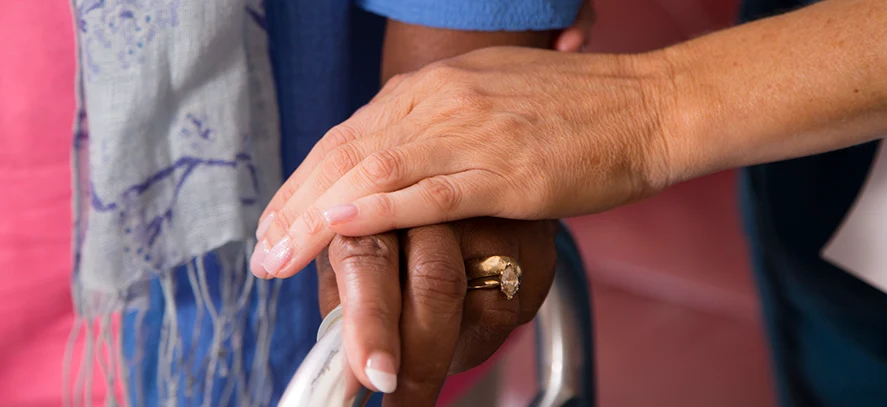The course of a terminal illness is, for nearly all people, a profound spiritual journey. When curative treatment becomes no longer tenable, persons confronted with existential questions about the meaning and purpose of their lives, and what will happen to them when they die.
For many patients, their deepest suffering is not only physical, but arises from spiritual pain surrounding issues of forgiveness and reconciliation. Particularly for those whose early experiences of a spiritual life are associated with fear, judgment and retribution, spiritual healing is an important means of reaching resolution.
The goal of hospice care is to assist the dying person on his or her journey, bringing comfort, reconciliation, and inner peace and to assure the long-term well-being of those who are left behind.
Hospice care is rooted in the belief that dying is much more than a medical event. The patient’s plan of care therefore includes careful attention to the emotional and spiritual needs of the patient and his or her family members.
Our target population in these terms are those who have developed full-blown Aids and in many cases do not have a concrete family structure or orphans who have no close relative to help them in this journey. As you are aware there is a great stigma amongst most communities who become aware that a member of their community is Aids ill. This applies across the racial and social structures. Many of our patients come to us afraid, in pain and have no one to confide their fears to.
Our objective is to ensure the continual growth of Palliative care; Hospice is actively involved in the fight against HIV/ Aids. However, for a large majority and because of myths, stigma, denial, and fear we are faced with many who have lost the battle, but these people are entitled to die in a loving, caring environment without judgment or ridicule, but to pass with the dignity that they deserve.
The end of life cannot be predicated for any of us. We do not know when it will happen, who will be with us, how it will occur, or what we will feel. Those involved in the process of dying have a variety of physical, spiritual, emotional and social needs.
Today Hospice Palliative care is not a specific place but a special concept of holistic palliative care designed with the goal to improve the quality of a patient’s last day by offering them and their families home based compassionate care, comfort, support and dignity.
Hospice provides personalized services at 75 center’s to approximately 20,000 current patients countrywide.
Palliative care emphasizes living, personal choice, helping people to make the most of each day by relieving of symptoms (especially pain) and enabling people to die in peace, with dignity, and in keeping with their values. Hospice is a clinically directed, interdisciplinary team consisting of professional and volunteers to provide physical, social, spiritual and emotional care. Also included is a variety of bereavement and counseling services.
Palliative Care – in essence, affirms life and regards dying as a normal process,
Neither hastens or postpones death, integrates the psychological and spiritual aspects of patient care, provides relief from pain and other distressing symptoms. Offers a support system to help patients live as actively as possible until death ; and offers a support system to help the family cope during the patients illness and their own bereavement.

